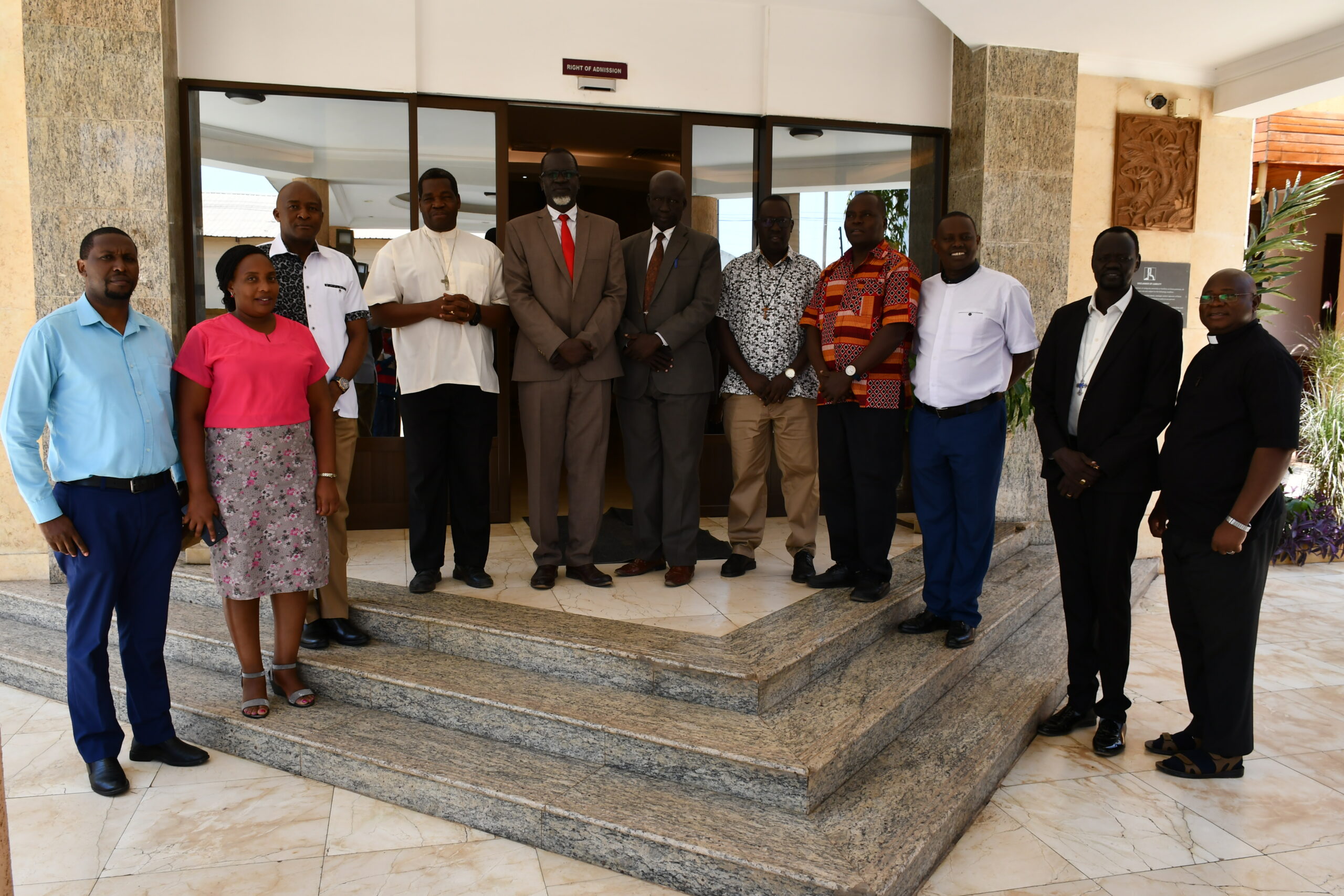The Association of Member Episcopal Conferences of Eastern Africa (AMECEA) has convened a workshop bringing together members of South Sudan’s National Constitutional Review Commission (NCRC) to discuss the country’s ongoing constitutional-making process.
On the second day of the workshop, NCRC Secretary-General John Natana Abraham provided an update on the commission’s progress, outlining both achievements and challenges. He emphasized the critical role of the Church in supporting the constitutional process, particularly in mobilizing political will and engaging the country’s leadership. Abraham stressed that technical support from the Church and other stakeholders is essential to ensuring a smooth transition.
He also underscored the importance of public engagement, highlighting the need for South Sudanese citizens to be well-informed and actively involved in shaping the country’s constitution.
Bishop Eduardo Hiiboro Kussala of the Tombura-Yambio Catholic Diocese, who also serves as the president of the Integral Human Development Commission of the Sudan and South Sudan Bishops’ Conference, reiterated that a well-crafted constitution is crucial to preventing future conflicts, especially in the lead-up to elections. He called for early preparations for the electoral process and emphasized the Church’s role in raising awareness and amplifying community voices in the constitutional review process.
“In this review process, the Church can be instrumental in mediation and guiding political parties to prioritize the country’s interests,” Bishop Hiiboro stated. He added that the Church is committed to preparing itself to support the people of South Sudan in making informed decisions for their nation.
Fr. Paul Munga’thia Igweta, Coordinator for Promoting Integral Human Development (PIHD) at AMECEA, reaffirmed the association’s commitment to assisting Bishops’ Conferences in peacebuilding and conflict resolution. He stressed the importance of preparedness in election monitoring and observation, citing previous Church involvement in constitutional review processes, such as in Kenya.
“The constitutional review is not just a government matter, nor is it solely for the Church or civil society. It is a multi-sectoral process that requires the participation of all stakeholders,” Fr. Paul stated.
He urged the Church in South Sudan to take a leading role in engaging with the constitutional-making process, ensuring that the new constitution reflects the will of the people and empowers all citizens.

